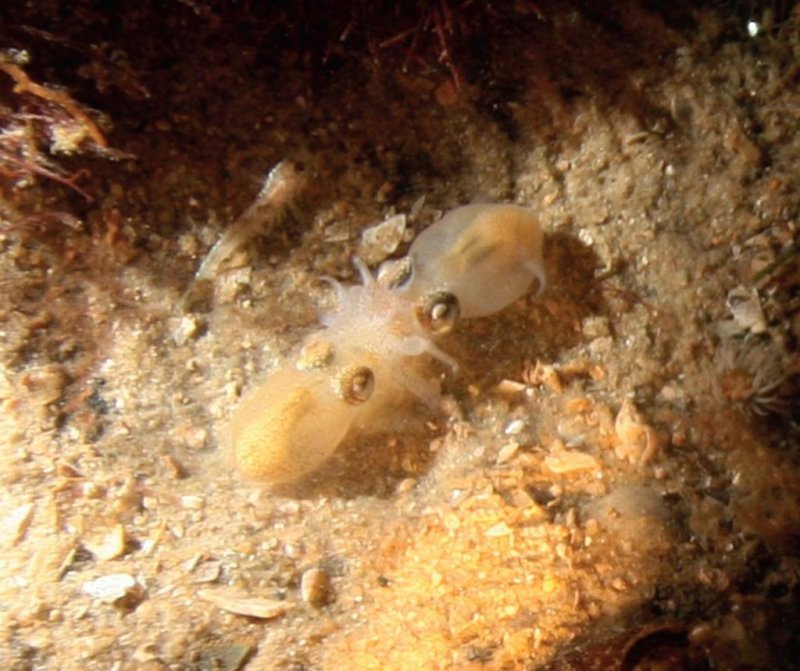Mating pair of southern bottletail squid. (Credit Kate Mills/"Spermatophore consumption in a cephalopod")
Female southern bottletail squid have been observed eating the sperm and ejaculate of males, for their own health, and to improve egg production.
Southern bottletail squid (Sepiadarium austrinum), found in southern Australia, only live for a year, and there is no overlap between generations.
Juveniles appear in January and reach maturity by early May, with females developing mature eggs by mid-June. Individuals mate repeatedly from May until November, with all adults dying by December.
Females store the sperm packages, called spermatophores, for up to three weeks in an external pouch near the mouth, called the buccal cavity. A female extracts mature eggs from her own body and passes them over the spermatophores to fertilize them before depositing them in seaweed or rock crevices.
A male's spermatophores take time to produce, and he must pass several to a female to have a chance at fertilization.
"If she is using the nutrients received from ejaculate consumption to develop her unfertilized eggs, he may even be helping the next male that mates with her," said lead author Benjamin Wegener from Monash University in Melbourne.
The smaller females consume much more sperm than larger ones, and males show a preference for the larger females. Researchers believe the males could have a better chance at fertilization if less of their sperm is consumed.
But the study also found that males still mated with small females, suggesting they may use the additional nutrients to produce higher numbers of healthier offspring than they otherwise could. There is also the potential for females to selectively eat the spermatophores of less desirable mates and save others.
The studies, led by PhD student Benjamin Wegener and Dr. Bob Wong from Monash University's School of Biological Sciences, in collaboration with researchers at Melbourne University and Museum Victoria, are published in Biology Letters and Behavioral Ecology.















